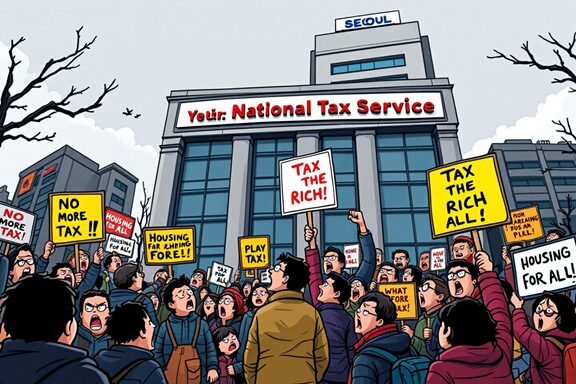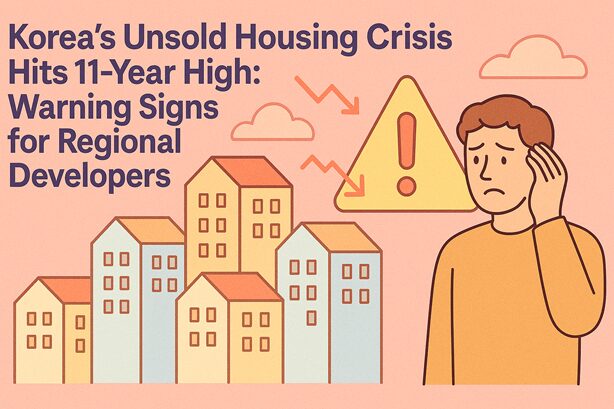The Breaking Point: Korea’s Skyrocketing Property Tax Sparks National Outcry
The recent announcement of comprehensive real estate tax assessments has ignited widespread debate across South Korea, with property owners facing substantial increases in their tax burden. Government data reveals that the number of comprehensive real estate tax payers has surged by 39% year-on-year, reflecting the expanding reach of this controversial tax policy. Beyond the statistics lies a growing public frustration that threatens to reshape both economic behavior and political landscapes in the months ahead.
Record-Breaking Tax Burden
The comprehensive real estate tax is hitting an unprecedented number of Korean property owners, creating significant financial pressure across the country.
- The number of comprehensive real estate tax payers increased by 39% year-on-year, reaching 1.08 million in 2024
- The total tax amount surged by 44.7% to 8.8 trillion won (approximately $6.5 billion)
- Single-home owners now make up 63.3% of all taxpayers, challenging the notion that this tax targets only wealthy multiple property owners
Geographic Disparity in Tax Impact
Seoul residents are bearing a disproportionate share of the national tax burden, highlighting regional economic imbalances.
- Seoul residents account for 39.1% of all comprehensive real estate tax payers nationwide
- Gyeonggi Province follows with 27.4% of taxpayers, creating a concentrated burden in the capital region
- The average tax per household in Seoul reached 9.6 million won, significantly higher than the national average
Political Fallout and Government Response
The tax situation has created a political dilemma for the current administration, which faces mounting criticism from traditionally supportive demographic groups.
- The tax increase has sparked widespread public dissatisfaction among homeowners who typically supported the current government
- Property owners in their 40s and 50s have experienced the largest percentage increases in tax burden
- Government officials acknowledge the challenge but remain committed to maintaining “fair taxation” principles
Economic Implications for Homeowners
Many property owners face difficult financial decisions as tax burdens increase despite stagnant or declining property values.
- The average tax per household increased by 4.6% to 8.09 million won
- Multiple property owners saw a 14.4% increase in their tax burden
- The disconnect between rising taxes and stabilizing property values has created financial strain for many families

The comprehensive real estate tax situation has evolved from a policy debate into a significant social and economic issue. As property owners receive their tax bills in the coming weeks, the government faces a delicate balancing act between revenue needs and growing public discontent.
Keywords
Korean property tax, comprehensive real estate tax, Seoul housing market
Hashtags
#KoreanPropertyTax #TaxPolicy #RealEstateKorea
한국어 요약
- 2024년 종합부동산세 대상자가 전년 대비 39% 증가한 108만명에 달하며 세금 부담이 크게 증가
- 서울 주민이 전체 납세자의 39.1%를 차지하며 가구당 평균 세액이 960만원으로 지역 간 세금 부담 격차 확대
- 단일 주택 소유자가 전체 납세자의 63.3%를 차지하여 ‘다주택자 과세’라는 정책 취지와 실제 과세 대상 간 괴리 발생
- 세금 부담 증가에 따른 정치적 논란이 심화되는 가운데 정부는 ‘공정 과세’ 원칙을 고수한다는 입장






